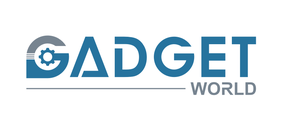Managing compliance and tax obligations is essential for contractors to avoid penalties, legal issues, and financial risks. However, keeping up with complex regulations and requirements can be challenging and time-consuming. That’s where payroll providers come in. Payroll service for contractors can help manage compliance and tax obligations, providing a range of services from payroll processing to tax filing and reporting. In this blog post, we will discuss the role of payroll providers in managing compliance and tax obligations for contractors, and how they can benefit construction businesses.
The Role of Payroll Providers in Managing Compliance and Tax Obligations for Contractors
Payroll providers offer businesses a range of services to manage compliance and tax obligations for contractors. These services include:
Contractor Classification
One of the most critical compliance obligations for businesses when hiring contractors is to ensure that they are classified correctly. Misclassifying contractors can result in significant penalties and legal issues for businesses. Payroll providers can assist businesses in correctly classifying contractors by reviewing their job duties, the level of control the business has over them, and the relationship between the business and the contractor. This ensures that businesses comply with the correct classification requirements, reducing the risk of penalties.
Tax Withholding
Businesses must withhold taxes from contractors’ paychecks and remit them to the government. These taxes include federal and state income taxes, Social Security and Medicare taxes, and unemployment taxes. Payroll providers can manage tax withholding for contractors, ensuring that businesses comply with their tax obligations.
Tax Reporting
Businesses must file tax reports with the government for each contractor they hire. These reports include Form 1099, which reports the contractor’s earnings, and Form W-2, which reports taxes withheld from the contractor’s pay. Payroll providers can prepare and file these tax reports on behalf of businesses, ensuring that they comply with tax reporting requirements.
Compliance Monitoring
Payroll providers can monitor compliance obligations for businesses, ensuring that they comply with legal requirements. This includes ensuring that businesses comply with minimum wage requirements, provide a safe working environment, and comply with equal opportunity laws. Compliance monitoring reduces the risk of legal issues and penalties for businesses.
Recordkeeping
Businesses must keep accurate records of their contractors’ pay and tax information. These records include hours worked, pay rates, and taxes withheld. Payroll providers can maintain these records for businesses, ensuring that they comply with recordkeeping requirements.
Benefits of Using Payroll Providers for Managing Compliance and Tax Obligations for Contractors
Using payroll providers to manage compliance and tax obligations for contractors offers several benefits to businesses. These benefits include:
Reduced Risk of Penalties
By using payroll providers to manage compliance and tax obligations for contractors, businesses can reduce the risk of penalties. Payroll providers ensure that businesses comply with legal requirements, reducing the risk of penalties associated with non-compliance.
Cost Savings
Outsourcing payroll management to payroll providers can save businesses money. Payroll providers have the expertise and resources to manage payroll more efficiently, reducing the time and resources that businesses need to manage payroll themselves. This reduces costs for businesses.
Time Savings
Managing compliance and tax obligations for contractors can be time-consuming for businesses. By outsourcing these tasks to payroll providers, businesses can save time and focus on their core functions, such as sales and marketing.
Expertise and Resources
Payroll providers have the expertise and resources to manage compliance and tax obligations for contractors. They stay up-to-date with changes in tax and employment laws, ensuring that businesses comply with legal requirements. They also have specialized software and tools to manage payroll efficiently, reducing the risk of errors and non-compliance.
Improved Accuracy
Payroll providers use specialized software and tools to manage payroll, reducing the risk of errors. This ensures that businesses comply with tax and employment laws and reduces the risk of legal issues and penalties associated with non-compliance.
Conclusion
Payroll providers play a crucial role in managing compliance and tax obligations for contractors, helping them avoid risks and focus on their core business. By working with a reputable payroll provider for contractors, construction businesses can save time and ensure accuracy and compliance with complex regulations.
If you’re a contractor looking for a reliable payroll service to manage your compliance and tax obligations, contact a reputable payroll provider for contractors such as Payroll4Construction today. They can provide customized solutions to meet your specific needs and ensure that your payroll is accurate, compliant, and secure. Don’t let compliance and tax obligations be a challenge – let the experts help you streamline your payroll process.



